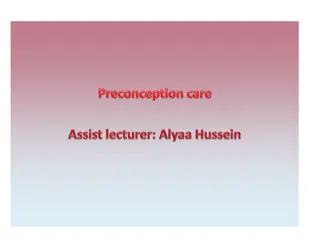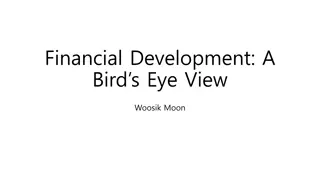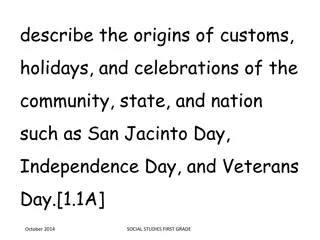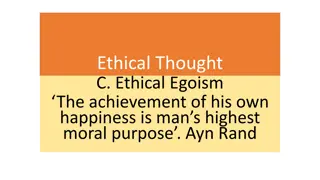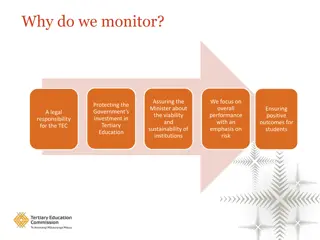
Ethical Perspectives in Business: Egoism and Utilitarianism Explained
Explore the ethical concepts of egoism and utilitarianism in business ethics. Understand how egoism prioritizes self-interest while utilitarianism focuses on maximizing overall happiness. Delve into the implications of these theories on business practices and decision-making.
Download Presentation

Please find below an Image/Link to download the presentation.
The content on the website is provided AS IS for your information and personal use only. It may not be sold, licensed, or shared on other websites without obtaining consent from the author. If you encounter any issues during the download, it is possible that the publisher has removed the file from their server.
You are allowed to download the files provided on this website for personal or commercial use, subject to the condition that they are used lawfully. All files are the property of their respective owners.
The content on the website is provided AS IS for your information and personal use only. It may not be sold, licensed, or shared on other websites without obtaining consent from the author.
E N D
Presentation Transcript
LIBYAN INTERNATIONAL MEDICAL UNIVERSITY Faculty of Business Administration Egoism And Utilitarianism in Business Ethics BY : Ali ALKHFIFY ID : 3807 Email : Ali_3807@limu.edu.ly
Table of Contents Introduction Egoism Utilitarianism Conclusion References 2
Introduction Utilitarianism says we should consider everyone's interests, whereas ethical egoism says people should act in their own self-interest. Both ethical egoism and utilitarianism are based on the assumption that something is good if it causes pleasure, and bad if it causes suffering, thereafter, they are both hedonistic theories. 3
Egoism Egoism is a normative ethical position which holds that moral agents ought to act in their own self-interest. egoism, at within the field of business ethics, is one of the most influential and theories.(Gauthier, D. (1986). debated ethical 4
Utilitarianism Utilitarianism implies an obligation for businesses to do what they can to act in a way that maximizes happiness and minimizes utilitarianism provides a basis for criticizing business behaviors that cause harm to anyone at all.( Hobbes, T. (1994). suffering. So, 3 5
Conclusion Utilitarianism, the most ethical action may be that which harms the individual agent but maximizes the positive impact for the most people overall, egoism, the individual has a greater value than others, thus it is ethical to act in one's own self-interest even if it may potentially harm others. 6
References Gauthier, D. (1986). Morals by agreement. Oxford, UK: Clarendon. Hobbes, T. (1994). Leviathan. Indianapolis: Hackett Publishing Company. Narveson, J. (2003). We don t owe them a thing! A tough-minded but soft-hearted view of aid to the faraway needy. The Monist, 86, 419 433.





